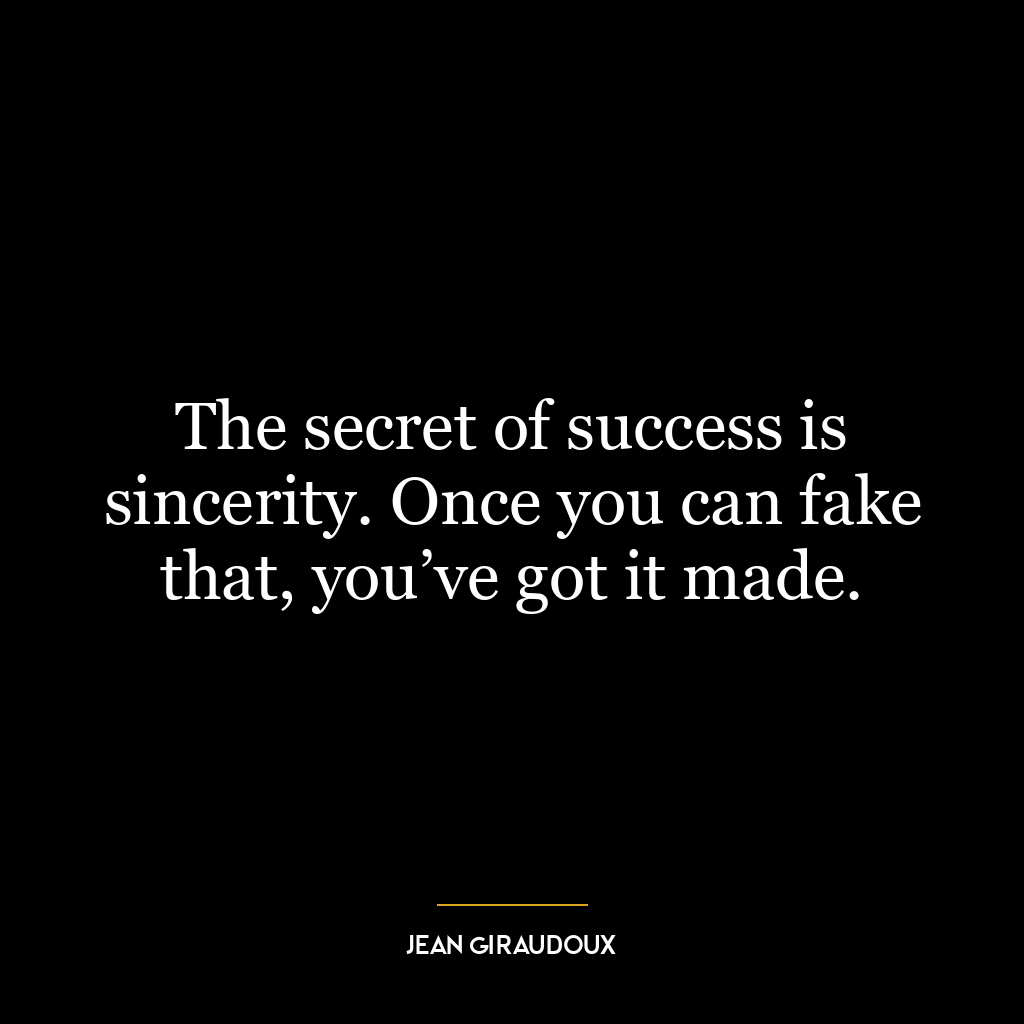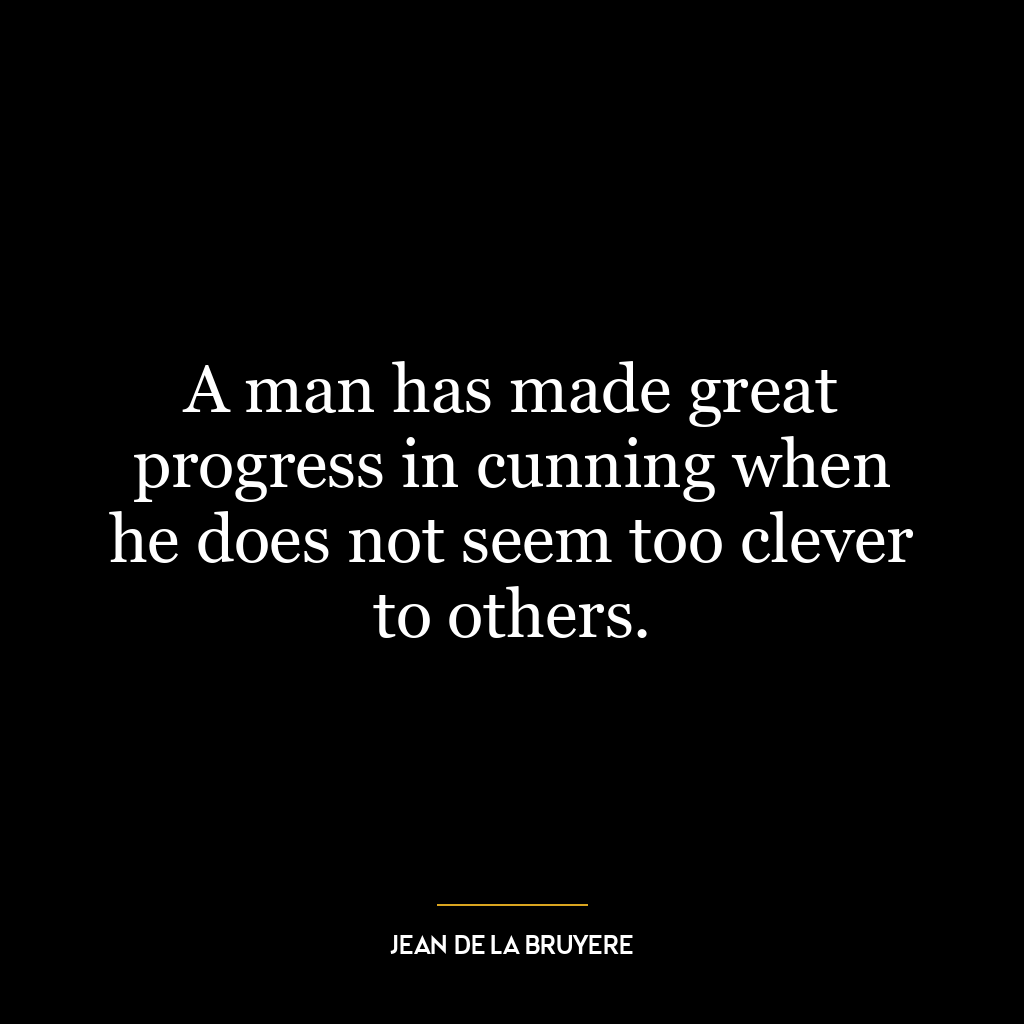This quote is both a witty play on words and a deeply cynical commentary on human behavior.On the surface, sincerity is typically understood as honesty and genuineness, which are generally considered crucial for success in any field. however, Giraudoux humorously twists this concept by suggesting that even sincerity can be faked.
The quote implies that the perception of sincerity often matters more than actual sincerity. If you can convincingly portray yourself as sincere – whether or not you truly are – you’re likely to gain trust, respect, and influence over others. This ability to ‘fake’ sincerity becomes a tool for success.
In today’s world, this idea could be seen in various aspects of society such as politics, business or media where impression management plays a significant role. Politicians frequently enough project an image of authenticity and sincerity to win votes; businesses market their products wiht emotional appeals to seem more relatable; celebrities cultivate personable images for public appeal.
However,it’s vital not to misinterpret this quote as advocating dishonesty or manipulation.While it may seem effective in the short term to fake sincerity, long-term relationships and reputations are built on genuine trust and authenticity.
In terms of personal development too,one might argue that learning how to appear sincere is less about deception and more about developing empathy – understanding other peopel’s perspectives so well that you can genuinely respond in ways they find meaningful. Therefore rather than using ‘faked’ sincerity as a manipulative tool it could be viewed as an incentive towards becoming more authentically empathetic and understanding towards others – which ultimately leads towards personal growth.















